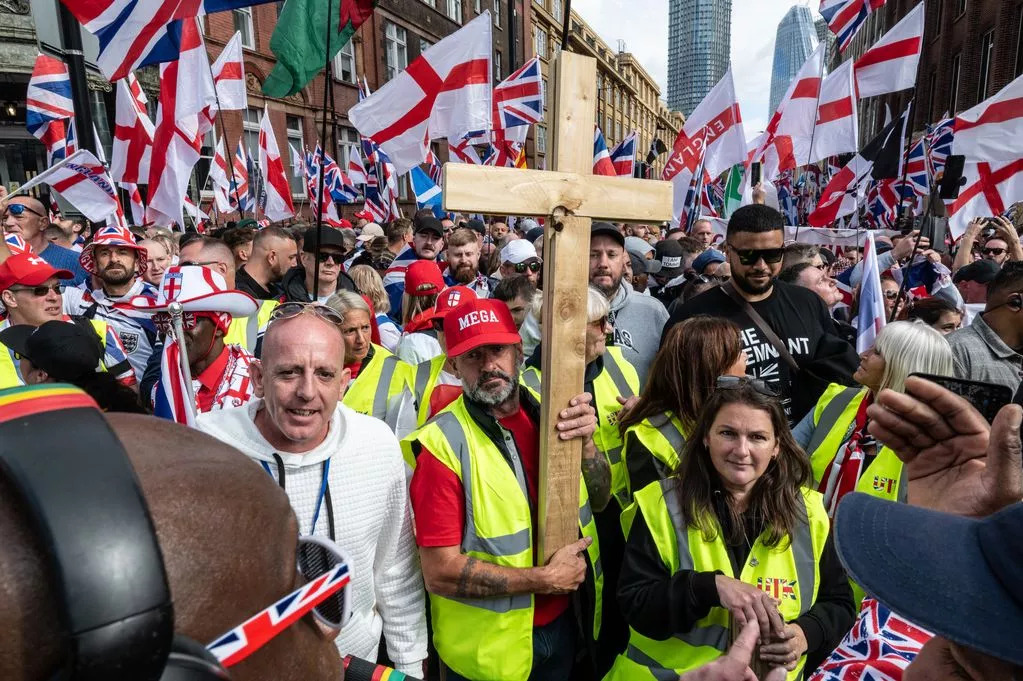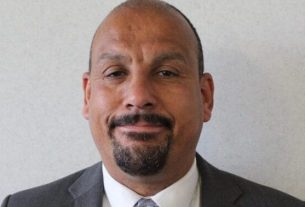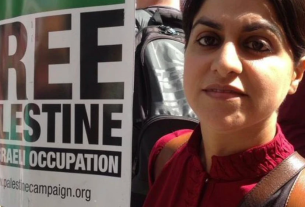Questioning the Labels in British Politics
In an era where political discourse is dominated by divisive rhetoric, one question looms large: are the majority of Brits far-right, or is the problem that the minority labelling them as such are actually far-left extremists? The recent Unite the Kingdom rally in London has thrust this debate into the spotlight, revealing a growing disconnect between ordinary citizens and the elite narratives peddled by mainstream media (MSM) and certain politicians. As tens of thousands gathered to voice concerns over immigration, free speech, and national unity, the event challenged the prevailing leftist orthodoxy that dismisses such views as extremist. It’s time to ask: who are the real radicals here?
The Unite the Kingdom Rally: A Massive Show of Patriotism
The Unite the Kingdom rally, organised by activist Tommy Robinson, took place on 13 September 2025, drawing an estimated 150,000 attendees according to Metropolitan Police figures. Robinson and organisers claimed the turnout was far higher, suggesting up to three million people either attended or watched online, a figure that underscores the rally’s viral impact across social media platforms. Millions tuned in via live streams, amplifying messages that resonated with a broad swath of the British public disillusioned with unchecked immigration, two-tier policing, and the erosion of traditional values.
Key themes at the rally included calls for stricter border controls, protection of free speech against government censorship, and opposition to what participants described as a cultural surrender to radical ideologies. Speakers emphasised unity across ethnic and religious lines, with Robinson highlighting stories of integration failures and the need to prioritise British citizens. The event also paid solemn tribute to the late American conservative activist Charlie Kirk, assassinated just days earlier on 11 September 2025 at Utah Valley University by suspect Tyler Robinson. Kirk’s death was mourned as a stark reminder of the dangers of political polarisation.
Prominent speakers included Robinson himself, who rallied the crowd with impassioned pleas for national pride. Tech billionaire Elon Musk appeared via video link, delivering a fierce speech warning that Britain must “fight back or die” against bureaucratic overreach and cultural decline. French far-right politician Eric Zemmour also addressed the gathering, drawing parallels between immigration challenges in the UK and Europe. Other voices, including British commentators and activists, reinforced the rally’s focus on reclaiming sovereignty from globalist influences. Despite minor scuffles leading to 25 arrests at the main protest and 9 reported arrests from the Stand Up To Racism counter protester, the event was largely peaceful, showcasing a diverse crowd united by shared grievances rather than hatred.
MSM Coverage: From Smears to Reluctant Acknowledgement
Initially, the MSM painted the rally and its supporters as far-right thugs, a knee-jerk label that has become all too common for any gathering challenging progressive dogma. Outlets like the BBC, Sky News, and The Guardian framed the event as a hotbed of extremism, echoing the far-left narrative that dismisses legitimate concerns as bigotry. Sky News, for instance, reported an attendance of around 150,000, a figure that downplayed the scale suggested by organisers and suggested a fringe movement rather than a mainstream uprising.
Yet, as the sheer numbers became impossible to ignore—with aerial footage and social media evidence revealing vast crowds stretching across central London—the tone shifted. What began as dismissive coverage evolved into reluctant admissions of the rally’s size and significance. Reports from outlets like Al Jazeera and NBC News acknowledged the huge turnout, noting how it exceeded expectations and highlighted widespread discontent. This change reflects a broader truth: Brits are no longer swallowing the far-left spin. Polls and online engagement show declining trust in MSM, with people turning to independent sources for unfiltered news. The rally’s success signals that the public is weary of being demonised for wanting secure borders and accountable governance, rejecting the biased lens that ignores real issues in favour of ideological purity.
The Far-Left’s Persistent Demonisation: The Case of Zarah Sultana
Enter Labour MP Zarah Sultana, a vocal far-left figure whose rhetoric exemplifies the problem. In the wake of the rally, Sultana took to social media to brand patriots as fascists, tweeting: “Fascists aren’t welcome in our streets. Not today. Not tomorrow. Not ever.” This inflammatory label ignores the diverse, working-class makeup of the attendees and was accompanied by an image of the rally crowd. Her tweet, part of a pattern of condemning anti-immigration sentiments as far-right hate, shows a blatant disregard for nuance. Sultana has repeatedly railed against what she calls far-right threats, as seen in her posts uniting against fascism and criticising rhetoric that fuels division—yet she employs the same tactics herself.
This hypocrisy is particularly galling in light of Charlie Kirk’s recent assassination. Kirk’s murder, amid heightened political tensions, should have served as a wake-up call about the perils of falsely demonising opponents. Accusing everyday Brits of fascism not only alienates voters but risks inciting violence, much like the polarising language that preceded Kirk’s death. Politicians like Sultana are the real issue in Western politics today: entrenched in echo chambers, they prioritise ideological warfare over dialogue, labelling dissenters as extremists while pushing radical agendas on issues like unchecked migration and identity politics. Her approach alienates the very communities Labour claims to represent, fuelling the rise of alternative voices and deepening societal divides.
The Left’s Ridiculous Claim: Words as Violence Fuelling Actual Harm
Compounding this issue is the far-left’s absurd mantra that “words are violence,” a doctrine peddled in academic circles and amplified by activists to justify censorship and, increasingly, real-world aggression. This twisted logic posits that dissenting opinions—whether on immigration, gender ideology, or cultural values—inflict harm equivalent to physical assault, thereby excusing those who respond with actual violence. We’ve seen this play out time and again: indoctrinated individuals, steeped in progressive echo chambers, interpret mere words as existential threats, leading them to commit assaults, riots, or worse.
In the context of the Unite the Kingdom rally, this rhetoric is weaponised to smear patriots as dangerous, paving the way for counter-protests that devolve into clashes. The assassination of Charlie Kirk serves as a chilling example—his outspoken conservatism was repeatedly labelled “hate speech” by left-wing critics, blurring the line between verbal disagreement and justification for murder. Figures like Sultana, by equating patriotism with fascism, contribute to this dangerous inversion: they claim words wound while their own inflammatory language radicalises followers into acts of genuine violence. This hypocrisy isn’t just intellectual laziness; it’s a tactic to silence opposition and maintain power, all while ordinary Brits suffer the consequences of unchecked extremism from the left.
Conclusion: The Real Extremists Exposed
The Unite the Kingdom rally wasn’t a fringe event—it was a barometer of public sentiment, proving that the majority of Brits aren’t far-right; they’re simply fed up with being gaslit by a far-left minority. As MSM narratives crumble under the weight of reality, and figures like Sultana cling to outdated smears, it’s clear who’s out of touch. The extremists aren’t the patriots demanding accountability; they’re the ideologues who shut down debate and divide the nation. If Britain is to unite, we must reject this toxic labelling and embrace honest conversations about our future.



